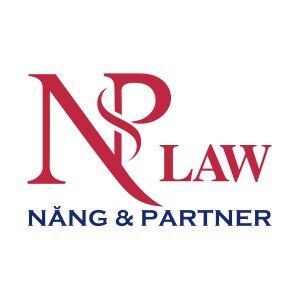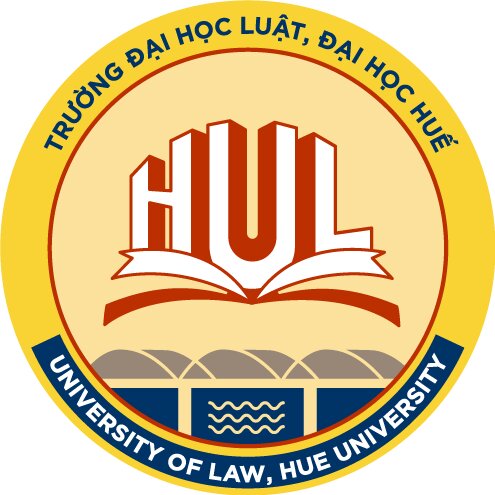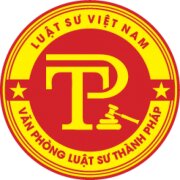Best Inheritance Law Lawyers in Vietnam
Share your needs with us, get contacted by law firms.
Free. Takes 2 min.
Or refine your search by selecting a city:
List of the best lawyers in Vietnam

1. About Inheritance Law Law in Vietnam
Inheritance law in Vietnam is primarily governed by the Civil Code, which sets out how a deceased person’s assets are distributed among legal heirs and testamentary beneficiaries. It covers both intestate succession (no will) and testamentary arrangements (will or legacy). The framework also interacts with land ownership, property transfers, and the role of executors, guardians, and heirs under Vietnamese law.
In practice, estates often require coordination between family members, notaries, and courts to validate wills, resolve disputes, and transfer title to heirs. The Civil Code has undergone amendments to clarify rights among spouses, children, and parents, and to streamline probate and asset division. Understanding who qualifies as an heir and how statutory shares are calculated is essential for planning and dispute prevention.
Vietnam's Civil Code governs inheritance, including the division of estates among statutory heirs and the rights of legatees.
Source: Ministry of Justice Vietnam
2. Why You May Need a Lawyer
Situations often require professional guidance to avoid delays or disputes in inheritance matters. A lawyer can help you navigate land transfers, wills, and court procedures efficiently.
- Drafting or challenging a will (testament) that affects shares among children or a surviving spouse in Vietnam. For example, disagreements over whether a will properly reflects a decedent’s wishes can trigger probate litigation.
- Resolving disputes among siblings or spouses about the distribution of a decedent’s assets, including real estate and bank accounts located in different provinces.
- Handling intestate succession when there is no will, including identification of legal heirs and calculation of statutory shares under the Civil Code.
- Managing estate administration for assets held abroad or under foreign ownership rules, which may require cross-border documentation and translation.
- Coordinating notarial actions for wills, affidavits, and to requisite title transfers with the Land Registry when real estate is involved.
- Addressing tax and fee considerations, such as administrative costs for probate, court filing fees, and potential surcharges during asset transfer.
3. Local Laws Overview
Civil Code (Inheritance Provisions) - the primary framework
The Civil Code sets out who qualifies as heirs, the order of succession, and the default shares for statutory heirs. It also governs testament validity, revocation, and the rights of spouses and children in asset distribution. The Code was enacted in 2015 and came into effect on 1 January 2017, with subsequent amendments to clarify inheritance issues.
Source: Ministry of Justice Vietnam
The Civil Code revisions implemented around 2017-2019 clarified statutory shares and the treatment of joint property between spouses in inheritance matters.
Notary Law - authentication and formalization of wills and estate transactions
The Notary Law provides the framework for authenticating wills and estate-related documents, which helps ensure enforceability in probate and transfers of title. Notarial authentication reduces disputes by creating official, binding records of a decedent's wishes and asset dispositions.
Source: Ministry of Justice Vietnam
Notarial authentication is often crucial for validating cross-border or multi-asset inheritance arrangements under Vietnamese law.
Civil Procedure Code (Estate and Probate Litigation) - court processes for disputes
The Civil Procedure Code governs how inheritance disputes are brought to court, heard, and resolved. It covers timelines for filing, evidence standards, and remedies available to heirs. Amendments in recent years have refined procedures for faster resolution of probate and related challenges.
Source: World Bank Vietnam
Recent changes and practical trends
Recent reforms emphasize clearer statutory shares and streamlined probate processes for straightforward estates. Courts now prioritize efficient handling of simple inheritance cases, while preserving protections for minors and incapacitated heirs. Notarial authentication remains a common step for real estate transfers within an estate.
Source: Ministry of Justice Vietnam and World Bank Vietnam
4. Frequently Asked Questions
What is the basic process to start inheritance proceedings in Vietnam?
Identify heirs, gather documents, file with a competent court or notary, and notify creditors. The process varies if there is a will or if assets are abroad.
What is a statutory heir under Vietnamese law?
A statutory heir is a close family member entitled to a share of the estate by law, such as a spouse, children, or parents, when there is no will.
When should a will be notarized in Vietnam?
Notarization is often advisable for real estate transfers to avoid disputes and ensure enforceability in court or land registry records.
How long does probate typically take for a simple estate?
Simple estates may be settled in 6-12 months if there are no disputes and documents are complete. Complex cases can take longer.
Do I need a Vietnamese lawyer to represent me in inheritance matters?
While not always mandatory, a qualified Vietnamese solicitor can help with documents, filings, and court appearances to reduce delays.
What documents are usually required to settle an estate?
Death certificate, family registry, property titles, identity papers, marriage certificates, and any existing will or probate orders.
Can a foreign will be recognized in Vietnam?
Foreign wills may be recognized if properly authenticated and translated, and if they comply with Vietnamese formalities and the Civil Code.
What is the difference between a will and an intestate succession plan?
A will expresses the decedent’s wishes; intestate succession applies when there is no valid will, and the law assigns shares to heirs.
How do I contest a will in Vietnam?
You typically file a challenge in court based on lack of capacity, fraud, coercion, or improper formalities in the will.
What about real estate that belongs to multiple heirs?
Co owned real estate requires partition or sale arrangements, and transfer of an undivided share may need court approval or notarized consent.
What costs should I expect in an inheritance case?
Costs include court fees, notary fees, translation and authentication, appraisals for assets, and attorney fees if you hire counsel.
Is there a time limit to file inheritance-related claims?
Yes, there are prescription periods depending on the type of claim, such as challenges to a will or disputes over asset ownership.
5. Additional Resources
- Ministry of Justice Vietnam - Official government body responsible for legal framework, civil code administration, and notarial services. Website: moj.gov.vn
- World Bank Vietnam - Provides analyses and country context on legal reform, private law, and governance that affect inheritance matters. Website: worldbank.org
- UNDP Vietnam - International development organization offering guidance on rule of law and access to justice that may inform heirs’ rights and dispute resolution. Website: undp.org
6. Next Steps
- Define your goal and gather all estate documents, including wills, titles, and family records, within 1 week.
- Consult a Vietnam-qualified solicitor or legal counsel to assess your position and possible strategies within 2 weeks.
- Request a case assessment and a written plan outlining steps, timelines, and costs within 1-2 weeks after the consult.
- Choose the appropriate path (notary authenticated process or court probate) based on asset type and dispute risk within 2 weeks.
- Initiate necessary filings with the competent authority (court or notary office) and schedule hearings or notarial sessions within 1 month.
- Track progress and adjust strategy as documents are reviewed and asset transfers are initiated, typically every 4-6 weeks until completion.
- Obtain final title transfers and distribute assets according to the plan, ensuring all heirs sign off on the partition within 2-3 months after resolution.
Lawzana helps you find the best lawyers and law firms in Vietnam through a curated and pre-screened list of qualified legal professionals. Our platform offers rankings and detailed profiles of attorneys and law firms, allowing you to compare based on practice areas, including Inheritance Law, experience, and client feedback.
Each profile includes a description of the firm's areas of practice, client reviews, team members and partners, year of establishment, spoken languages, office locations, contact information, social media presence, and any published articles or resources. Most firms on our platform speak English and are experienced in both local and international legal matters.
Get a quote from top-rated law firms in Vietnam — quickly, securely, and without unnecessary hassle.
Disclaimer:
The information provided on this page is for general informational purposes only and does not constitute legal advice. While we strive to ensure the accuracy and relevance of the content, legal information may change over time, and interpretations of the law can vary. You should always consult with a qualified legal professional for advice specific to your situation.
We disclaim all liability for actions taken or not taken based on the content of this page. If you believe any information is incorrect or outdated, please contact us, and we will review and update it where appropriate.
Browse inheritance law law firms by city in Vietnam
Refine your search by selecting a city.
















